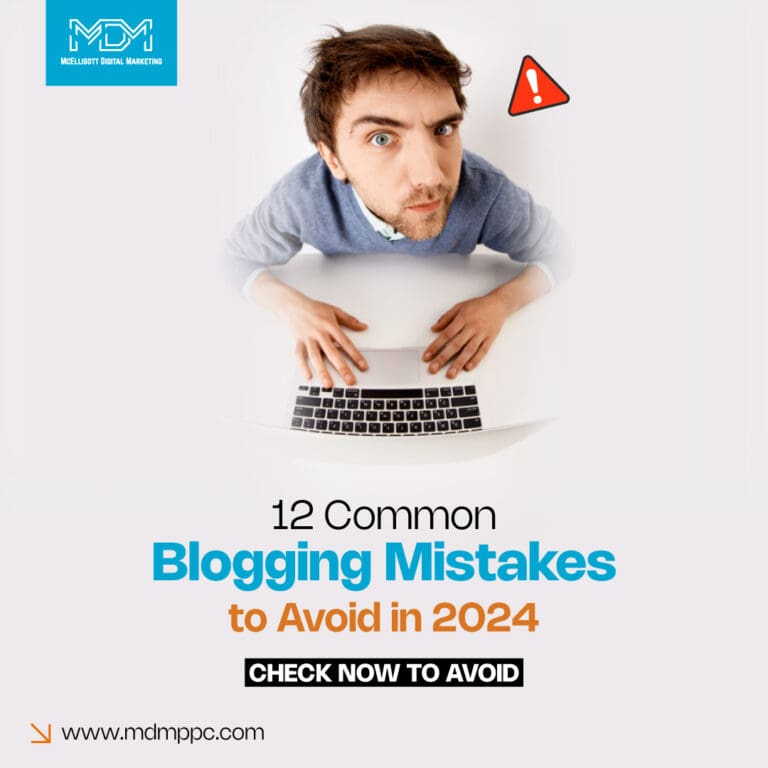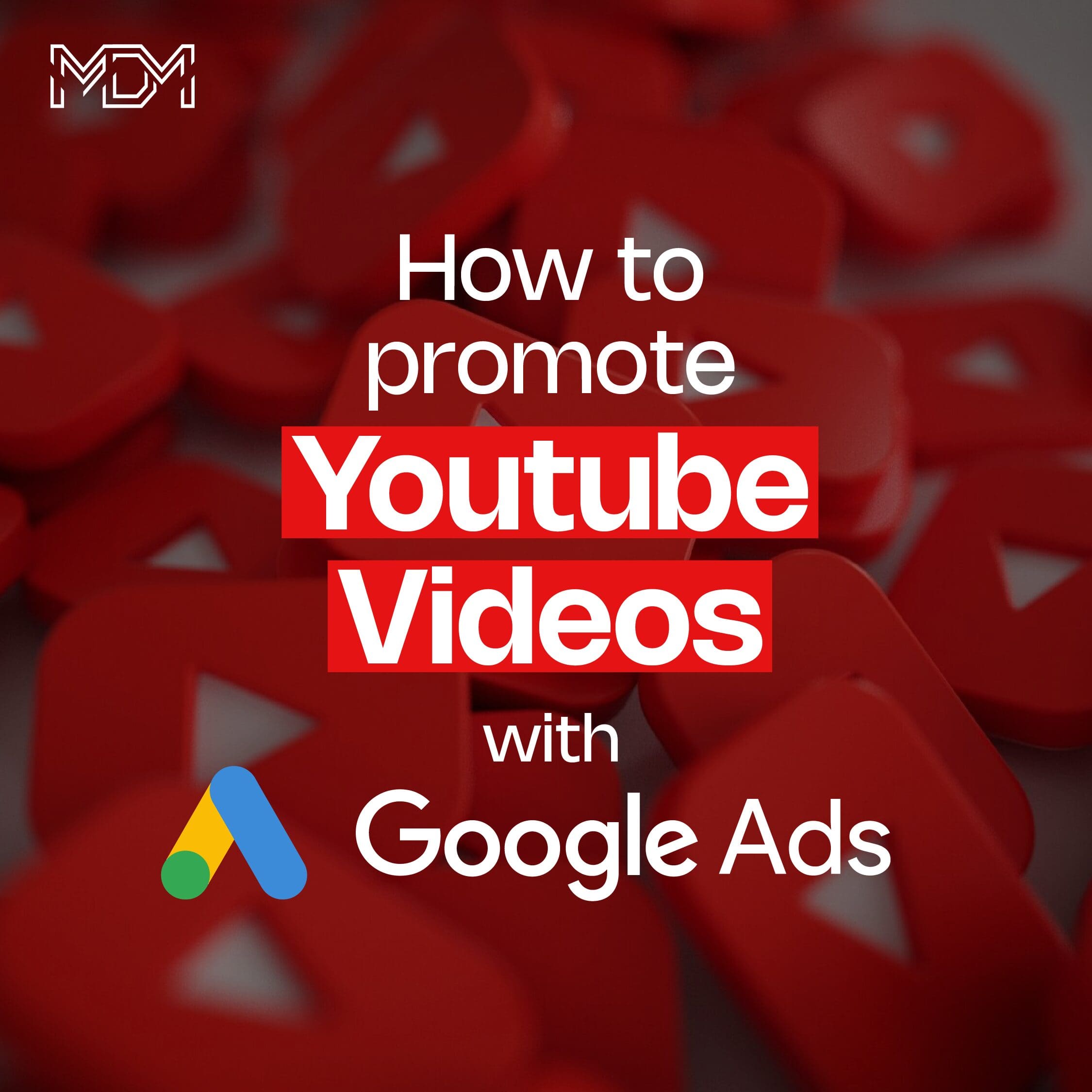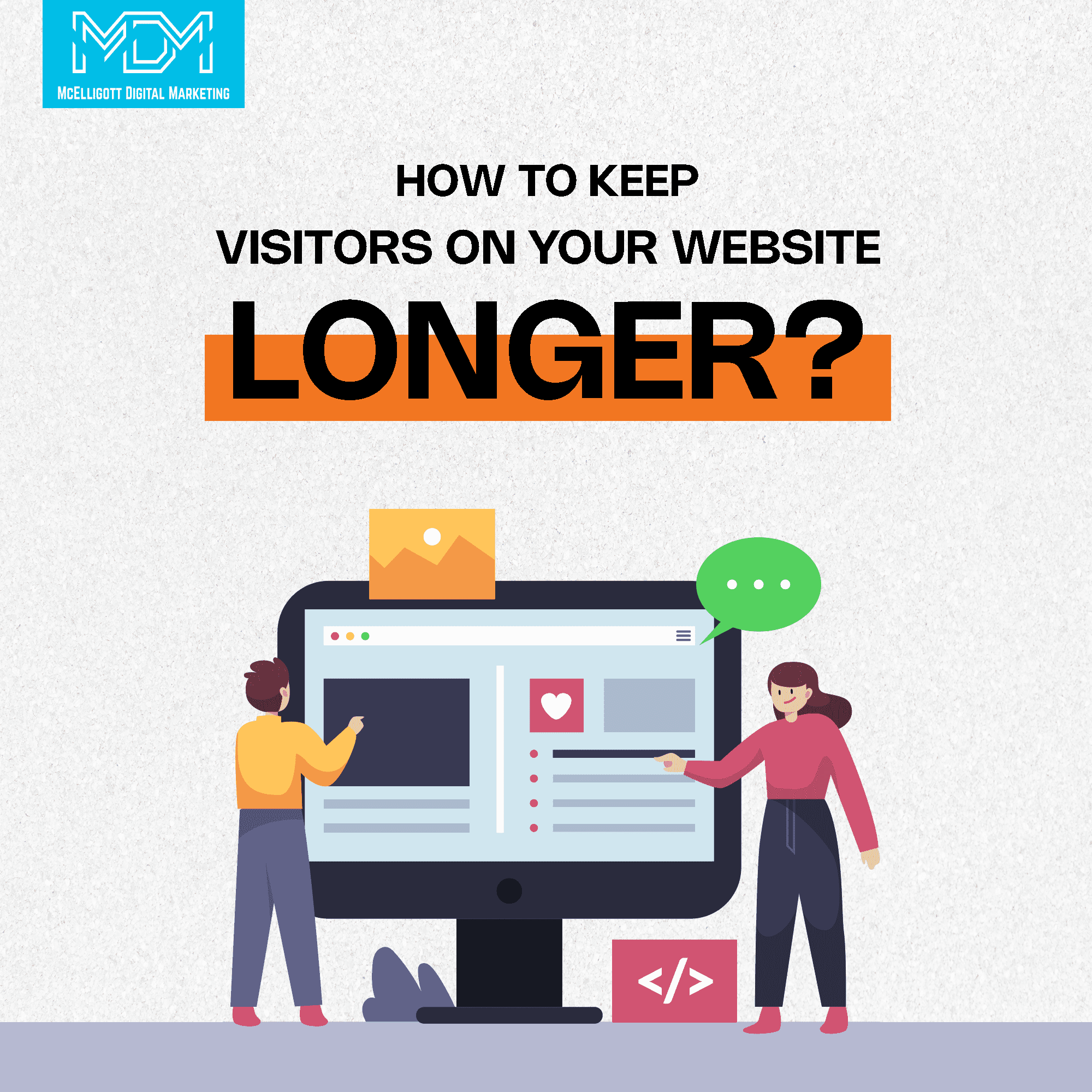To grow your brand’s presence and make your site appear at the top of the Google search results, you need to avoid the biggest blogging mistakes people make.
Creating a website and publishing has become easier and affordable thanks to secure, fast, and reliable WordPress website hosting with McElligott Digital Marketing. As you start publishing blogs on your websites, you’ll come across many ‘best beginners guide to blogging’ kinds of posts.
However, as you continue your blogging journey, it goes without saying that you will make some blogging mistakes. Well, it’s okay to make amateur blogging mistakes but these mistakes should not cost you your audience, as they could also be your potential customers.
Do you need industry-focused and revenue-driven content for your business? If yes, you can take the help of McElligott Digital Marketing’s content writing services that range from blog posts, ebooks and newsletters, case studies, and SEO content to website content and video & podcast scripts.
Or, you can keep reading to learn about common blogging mistakes that you should stop making immediately.
12 common blogging mistakes that are the reasons behind your blogs not working
1. Not understanding your audience
A big blogging mistake is not knowing who reads the content you’re posting. It’s like looking for a tiny needle in a haystack, blindfolded. When you write without a clear audience, it’s like you’re doing it just for yourself, which raises the question of why show it to others.
Knowing your audience means understanding the people who read your blog. It’s like talking in a way that they get and writing about stuff that interests them. A blog shouldn’t be like a one-way conversation but a friendly chat. This understanding changes how you write and helps you pick topics that your readers will like and not just for the algorithm. If you know how to use your company blog as a successful marketing tool, it’ll enhance your brand presence online.
Knowing your audience is helpful. It helps you write better by using words and ideas that your readers like. Having a map for your blogging journey makes it more fun for you and your readers.
So, when you write, think about who you’re writing for.
2. Wrong WordPress themes
WordPress is a good choice to start your blog. But there’s a common mistake that many new bloggers make with WordPress.
The first slip-up is choosing the wrong theme. There are lots of free and paid themes, but not all are good.
Some themes limit your ability to customize your blog, while others make your site slow with extra stuff. Even though you can change your theme later on WordPress, it takes some planning.
Switching themes is like changing the look of your blog, but you need to fix things afterward. It might look a bit weird until you sort it out, and that takes time and effort, especially when you start blogging.
So, it’s smart to avoid this mistake from the beginning and start with a great WordPress theme.
Another mistake people often make is choosing the right domain name. You shouldn’t choose domain names that are quite alike other brands, tough and difficult to write domain names.
3. Not doing internal linking
Neglecting internal linking is one of the newbie blogging mistakes with significant drawbacks.
Internal links, connecting one page to another within your website, benefit both SEO and user experience. They provide a roadmap for search engines, improve rankings, and guide readers to explore related content, enhancing engagement.
To avoid this error, integrate internal linking into your blogging routine. When creating new content, don’t let go of opportunities to link to relevant older posts. Utilize descriptive anchor text for smoother navigation. Internal linking is essential for maximizing SEO impact and ensuring a more engaging experience for your audience.
P.S.: Check whether your website has strong internal linking with this free SEO audit report.
4. Ignoring SEO
Making great content is super important for blogging. But if your content isn’t set up for search engines, people might not reach there easily. That’s where search engine optimization (SEO) comes in. SEO means tweaking your blog so it shows up higher when people search for words related to your blog.
If you don’t know how to create an effective SEO strategy in 2024, your blog might end up on the second or third page of search results, and fewer people will see it. To get more people to find and read your blog, you need to focus on SEO. If you want to get found in local searches and start a blog to boost your online presence, local SEO becomes extremely important.
SEO means using keywords in your content and descriptions and connecting different parts of your blog. Paying attention to SEO is crucial for growing your blog audience and becoming a go-to resource in your area of interest. So, publish awesome blog posts regularly to bring in more visitors.
5. Keyword research mistakes
Ignoring thorough keyword research is a common blogging mistake that can limit the reach and impact of your blog. When you overlook comprehensive keyword research, you miss out on valuable opportunities to connect with your target audience.
To correct this, you have to prioritize keyword exploration. Make a conscious effort to seamlessly integrate relevant terms into your blog content. This strategic approach broadens the visibility of your blog and enhances its chances of being discovered by people actively searching for content related to your niche.
6. Not updating your blog consistently
Being inconsistent in blogging is one of the blogging mistakes to avoid. Delivering content regularly helps you stay relevant and get more visitors to your site. On the other hand, blogging inconsistently is like playing hide and seek with your readers. They come to your blog hoping for new learnings, but if you only post now and then, they might lose interest.
To blog regularly, try making a content calendar to plan your posts. Start with realistic goals, like posting once a week, and gradually do more. Break down your tasks into smaller parts, find a routine for writing, and don’t hesitate to ask other bloggers for help. Blogging can be tough sometimes, especially in the beginning, but if you keep writing consistently, it makes a big difference.
7. Quantity over quality content
Just posting a lot of content on your blog doesn’t always make it great. It’s about finding the right balance in your blog content. You want to have a steady flow of content, but each piece should be really good, not just a bunch of random things.
Focus on creating posts that are well-researched and interesting to your readers. It’s not about how many posts you do, it never was, rather it’s about making each one count. That way, your blog becomes more trustworthy and enjoyable for the people checking it out, cementing it as the best blog in your niche. Prioritize quality over quantity, and you’ll have a blog that people love to read and useful to your potential customers.
8. Not building backlinks
Ignoring the importance of building backlinks can reduce your blog’s authority.
What you should do instead is to actively seek reputable backlinks through guest posts, collaborations, and networking. Backlinks are important for establishing your blog’s authority and credibility within your niche. If you strategically build a network of backlinks from relevant and reputable sources, you enhance your blog’s visibility and reputation and strengthen the SEO score.
9. Ignoring analytics
Think of analytics as your blogging guide- it tells you what’s working and what’s not with your blogs. Ignoring data on things like how people behave on your blog or where your traffic comes from is like moving around blindly.
So, use tools like Google Analytics and Google Console to check how your blog is doing regularly. This helps you make smarter choices about what content to create and improve your blogging plan. Keep an eye on these analytics, to understand your audience better and make your blog even better and more interesting for them.
10. Taking users to unrelated pages
If you put links, either from inside or outside, that go to unrelated pages, it will just confuse your readers. Keep it simple- only use links that help your readers get more from what you’re talking about. Make sure each link has a purpose and adds something good to what your readers are checking out.
11. Creating duplicate content
Putting the same content on your blog can cause problems. It’s not just about someone stealing your stuff, it can also hurt how well your blog shows up on search engines.
Even if you reuse your own words too much, it can lead to issues. To keep things good, try to mix it up. Don’t copy-paste the same stuff. Maybe share your ideas in different ways or update the information. This way, your blog stays unique, people like it more, and it helps your blog show up better on search engines.
12. Publishing unedited AI content
If you’re entering a few keywords in an AI tool like ChatGPT, copying the AI-generated content, and pasting it into your blogs, you’re making a great blogging mistake.
AI blogging mistakes are reducing the authenticity and authority of blogs as they focus on quantity rather than human touch and experience.
AI can create content that sounds nice, but it might not always be right. On ChatGPT, there’s a big warning about this issue, saying that a human needs to check what the AI creates to make sure it’s good enough to share.
Some businesses might publish AI-generated content without checking it first. It might seem okay for a while before any problems show up. For a strong SEO and better online presence, you shouldn’t rely only on AI. You need human input to make sure your content is exceptional and trustworthy.
Conclusion
To sum it up, if you want your blog to be successful and your website to appear at the top of the search results, watch out for common blogging mistakes. Focus on understanding your audience, link inside your blog, and pay attention to SEO. Regular updates to your blog and quality content matter and backlinks add more authority.
This guide can help you avoid the blogging mistakes people often make when they start a blog. But our content marketing strategy goes beyond avoiding mistakes. We focus on creating content that attracts interested users and drives them to explore the products and services of our clients.
With our years of experience in content marketing, SEO, and PPC, we’re best equipped to bring more traffic and leads to your website.
Pick your needs from our range of services.
- Social Media Content
- SEO services
- Ebooks and Newsletters
- Website services
- Website Content
- SEO Content
- PPC services
Ready to get started with your blogs?
Get a FREE quote on our content writing services today at (833) 772-4897.
FAQs
1. What are the common blogging mistakes to avoid?
Avoid the mistake of not having an editorial calendar for organized and planned posts. Add SEO-optimized content to your website. Respond to comments and questions from readers to build crucial audience relationships.
2. Why do some businesses fail at blogs?
Most bloggers fail due to common mistakes like lacking technical knowledge, SEO ignorance, and underestimating the effort required. Success demands hard work, dedication, and consistent creation of high-quality content.
3. How frequently should I update my blogs?
Update your blog at least once a week for optimal engagement. Consistency is an important factor so make a schedule and stick to it to keep readers engaged.





